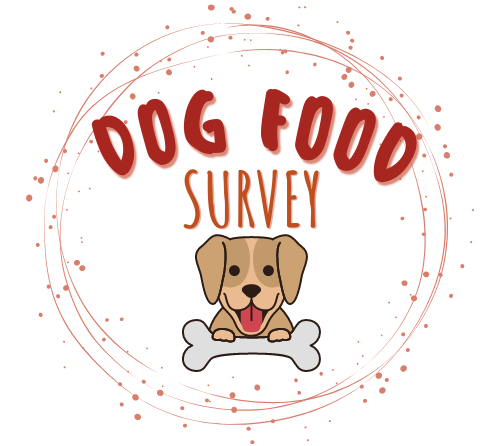Can Dogs Be Allergic To Peanut Butter?
Table of Contents
You want to feed your dog delicious peanut butter that is low in fat and high in protein because you want him to have the best nutrition possible. But, before you begin feeding him, you want to ensure that he does not react badly to the peanut butter Can Dogs Be Allergic To Peanut Butter?
Dogs are naturally prone to food allergies and may react to certain food items. If your dog starts to have symptoms such as diarrhea, vomiting, coughing, or wheezing, it is best to stop feeding him a peanut butter and seek medical advice. You can also try substituting with a different food product.
In this article, I will outline a few very simple steps you can take so that you can determine if your dog has a peanut butter allergy. By following these simple guidelines, you can ensure that your furry friend has the best nutrition possible and can’t suffer from any allergic reactions.
So;
Let’s start reading;
Symptoms of peanut butter allergies:
The following are some common allergy symptoms listed below:
- Diarrhea
- Vomiting
- Coughing
- Sneezing
- Wheezing
- Itchy skin, excessive licking
If your dog begins experiencing any of these symptoms, it is best to stop feeding him peanut butter and seek medical attention.
Types of peanut butter allergies
A mild reaction can occur in some dogs after they are fed peanut butter for the first time. This reaction generally lasts a few days. However, if you suspect your dog suffers from an allergy, you must immediately stop feeding him peanut butter and seek medical help.
Here are some common types of allergies that dogs can suffer from:
• Allergic rhinitis – This allergy usually affects the nose and throat. It can cause your dog to become congested and suffer from sneezing and coughing. It can also result having watery eyes. The allergy is triggered by the proteins in peanut butter and is also known as oral allergy syndrome.
• Food intolerance – A dog suffering from this allergy cannot digest peanuts well. Instead, he tends to suffer from digestive problems and stomach upset. This is caused by certain substances, such as amines, produced when roasting peanuts.
• Anaphylaxis – This is an extreme form of allergic reaction. The most common symptoms include wheezing, breathing difficulties, vomiting and diarrhea. Some dogs may even require an epinephrine injector and steroids to treat the condition.

Diagnosis of Peanut Butter Allergies in Dogs
• Skin rashes – Dogs who are suffering from nut allergies may develop skin rashes or hives. They can also develop a rash around the mouth and paws.
• Vomiting – Dogs who suffer from peanut allergies risk developing vomiting. In rare cases, vomiting can be so severe that it causes their intestines to become blocked. This is referred to as Intestinal Obstruction or Intussusception.
• Diarrhea – Sometimes, dogs allergic to peanut butter may experience diarrhea and have watery stools. This can sometimes be very painful and may be accompanied by a fever.
• Breathing problems – If a dog has an allergic reaction, he can often feel tightness in his chest and difficulty breathing. If you observe your dog may be suffering from an allergic reaction, take him to the vet immediately.
• Skin irritations – A dog suffering from an allergic reaction may develop itching on his skin. If a dog is scratching excessively, he could end up with raw or infected areas.
- Anaphylactic shock: Anaphylactic shock is when a dog suffers from a severe allergic reaction to something. The symptoms include redness, swelling, itching, drooling, and vomiting.
- The veterinarian can also perform a skin test to check internal bodily reactions. A peanut extract is injected into the dog’s bloodstream. His saliva or blood sample will then be collected after the injection and tested to see if the allergic reaction occurred.
If the reaction occurs, the sample can be tested again to confirm the results and then recommended topical creams and veterinary medicine.
Peanut allergy is not usually life-threatening but can be extremely uncomfortable for your furry friends and should always be taken seriously.
Treatments of peanut butter allergies in dogs
If your dog develops an allergy, you should obtain their medical records and consult your veterinarian about the most effective way to treat the condition. If your dog has been diagnosed with an allergy, your vet will recommend several medications to help manage the condition.
• Injections – Dogs that suffer from severe peanut allergies may need to be injected with a solution containing a low dose of peanut protein. This treatment takes place monthly or every two weeks, depending on how severely the allergy affects the dog. The injections aim to build up the immune system’s tolerance toward the allergen so that it will respond better when the dog eats peanuts.
• Anti-histamines – Histamines cause itching and are released by mast cells when they become activated. The anti-histamines are prescribed to help reduce itching and ease the severity of the allergic reaction.
They function by preventing histamine reactions by suppressing histamine activation in the body. Examples include diphenhydramine (Benadryl), cetirizine (Zyrtec), and loratadine (Claritin).
• Corticosteroids – These are steroids that control inflammation and are used to reduce inflammation caused by allergies. However, they cannot cure the allergic reaction. Corticosteroids are often given simultaneously as anti-histamines to prevent them from blocking the effect of corticosteroids. Examples include dexamethasone, prednisone, and methylprednisolone.
• Tricyclic anti-depressants – These are anti-depressant drugs that also have anti-allergic effects. They are used as a type of “cure” for allergies. They can effectively treat mild allergies and not affect other medications.
However, they should not use in combination with corticosteroids because of the risk of side effects. Examples include amitriptyline (Elavil), nortriptyline (Pamelor), and imipramine (Tofranil).
• Allergy shots involve giving a vaccine that stimulates the dog’s immune system to attack the specific allergen(s) causing the allergic reaction. The shots are usually given once a month for a year, but some dogs may need to receive several shots over a longer period.
Recovery of Peanut Butter Allergies in Dogs
Avoidance
This is the easiest way to treat a dog diagnosed with an allergy. Do not feed the dog peanut butter. Try feeding a different type of food. A dog with a severe allergy may have to be fed a special diet with a limited amount of peanut butter.
Peanut butter, egg, soy, wheat, and milk are the foods most likely to create trouble for your dog. Certain varieties of meat cause allergic reactions in certain people. This is a “meat allergy” and may cause dog trouble. These allergies are managed by using hypoallergenic dog food or a grain-free diet.
Medication
For dogs that do not respond to avoidance, or if your veterinarian determines that peanut butter is a necessary part of the diet, some medications can help control the allergy.
Your veterinarian will recommend a medication for your dog based on his level of severity, age, and overall health. The medicine may administer either orally or through injections. The most common is subcutaneous (under the skin) or intraperitoneal (into the abdomen).
Frequently Asked Questions
What is the most common dog allergy?
Dust mite allergies are among the most frequent canine allergies. Itching, sneezing, and congestion are the most typical symptoms. If you believe your dog has this condition, make sure to clean its bedding frequently and thoroughly, and use a dust mite allergy treatment if necessary.
Can peanut butter upset dogs’ stomachs?
Peanut butter, for dogs, is a very good source of protein. Dogs need to consume protein to build strong muscles. However, it would assist if you remembered that it’s a common practice to feed it to them. If they aren’t used to eating it, they could experience nausea and diarrhea. Therefore, it’s advised to feed your dog the right quantity of peanut butter rather than giving it an overdose.
Which peanut butter brands are OK for dogs?
A variety of brands are available that are safe for dogs. These include
Whole Foods 365 Everyday Value Organic Peanut Butter.
Trader Joe’s Peanut Butter (No Salt)
Teddie Super Chunky Peanut Butter.
Poochie Dog Peanut Butter.
Organic peanut butter is also suitable for dogs, but make sure you buy it in small amounts, as the oil content is high.
What brands of peanut butter contain xylitol?
The following are some brands that contain xylitol:
Go Nuts Co.,
Krush Nutrition
Nuts’ N More
P28 Foods
Protein Plus PB.
Are bananas good for dogs?
Yes, bananas are healthy for dogs to eat, but ensure your dog only eats ripe bananas, not green ones. The former is high in potassium and essential for a dog’s health. They also help your dog’s heart, kidneys, liver, muscles, bones, and skin remain healthy.
Is it OK to feed dogs yogurt?
Yes, you can give your dog yogurt, especially if it is low in fat. It contains critical elements such as vitamins and minerals and is high in calcium. However, you shouldn’t feed them daily; you should only feed them small amounts for maximum health benefits.
Why do dogs constantly lick their paws?
Dogs lick their paws because they have rough, dry skin, which gets irritated easily. This skin condition usually occurs when the dog spends a lot of time outdoors, in cold or wet weather. To keep this issue under control, try bathing your pet regularly with a lukewarm bath, and apply some moisturizer to the area where the paws itch the most.
Are golden retrievers allergic to peanut butter?
Many dogs can eat peanuts without having adverse effects. However, some breeds, including golden retrievers, are allergic to them. If your dog has eaten a piece of peanut-based food, try to feed it something else instead.
Can dogs be allergic to eggs?
While most pets can tolerate eggs, some are more sensitive to them. And since eggs contain proteins that can trigger allergic reactions, it is best to avoid feeding them to pets that might suffer from such allergies.
Conclusion
Many dog owners think that canines do not develop allergies to foods. This is false, and it is very common for dogs to develop food allergies. It’s estimated that 25% of dogs have some form of food allergy, and dogs’ most common food allergens include wheat, nuts, beef, chicken, corn, and eggs.
If you see a dog that is reacting to peanut butter, make sure you get it checked out. To diagnose your dog’s peanut butter allergy, you will need to test your dog for a reaction to peanut butter. Some veterinarians use a skin prick test, considered the most accurate way to detect allergies in dogs.
With proper treatment and diagnosis, peanut butter allergies can be managed. You can also help your dog deal with food allergies by learning more about them.
Have you had any experience with peanut butter allergies in dogs? If not, please share your thoughts in the comments below.
- 1xbet официального Сайт Казино Игровыми Автоматами 1хбет - April 17, 2024
- Бездепозитные Бонусы За Регистрацию и Онлайн Казино 202 - April 9, 2024
- Yeni Deneme Bonusu Veren On Line Casino Siteler - January 31, 2024






